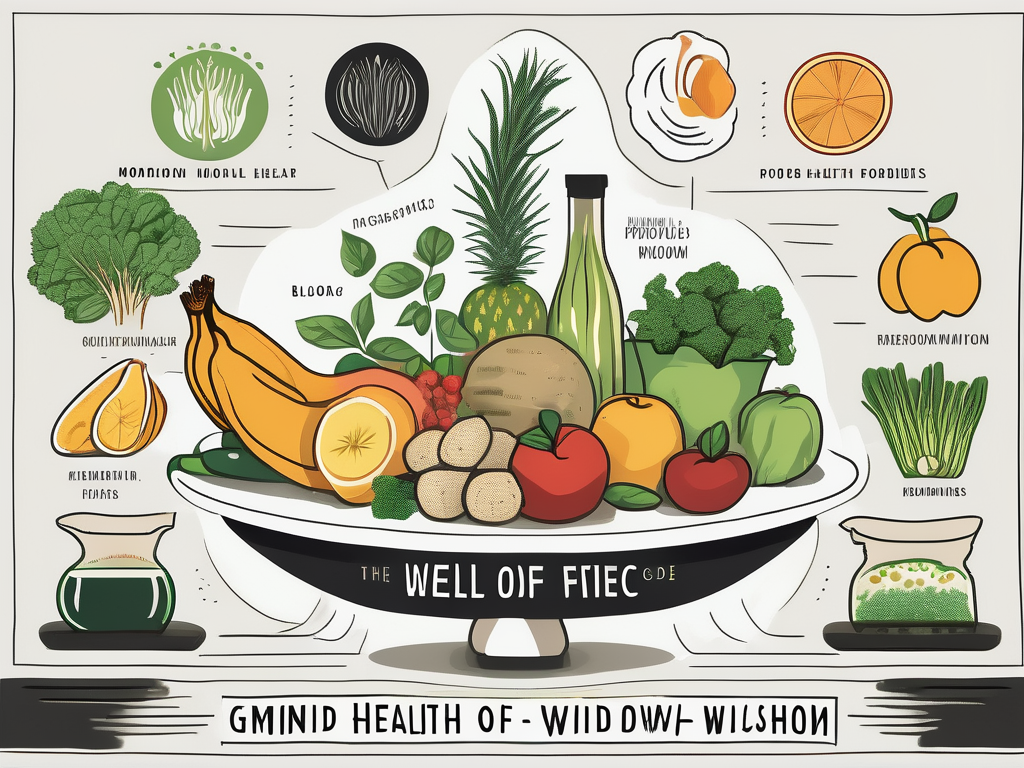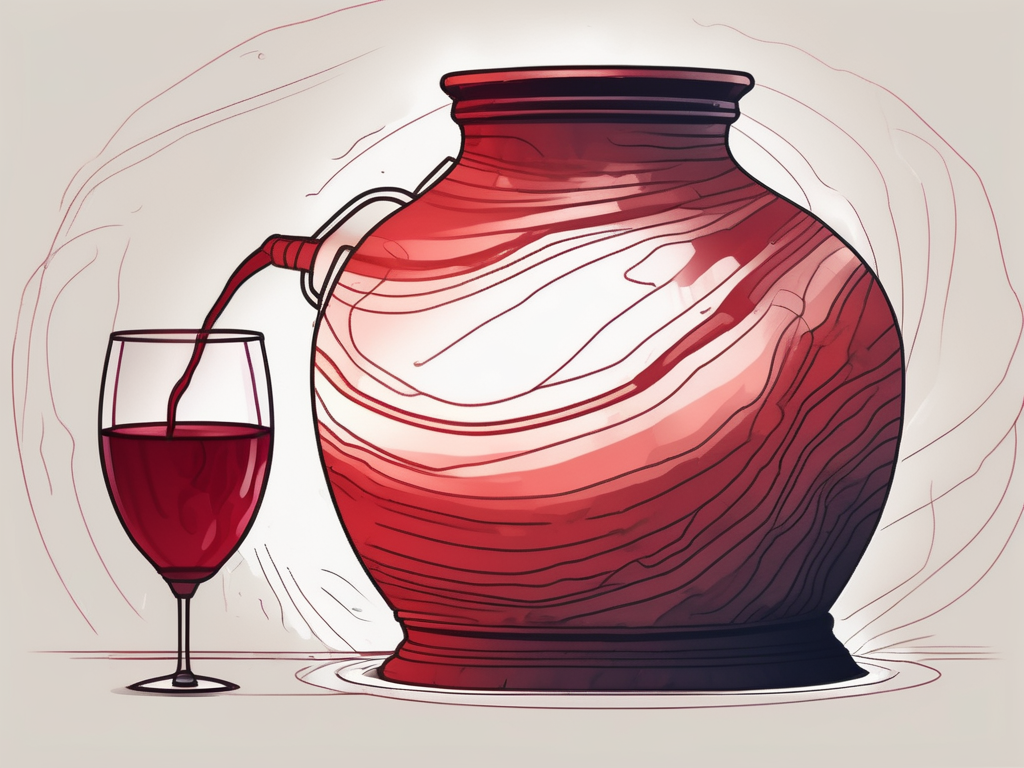Alcohol is a contentious topic, even among religious circles. Christians often debate the role of alcohol in their lives and whether it aligns with biblical teachings. In this article, we will explore what the Bible has to say about alcohol consumption. By understanding the historical context, examining specific passages, and considering different theological perspectives, we can gain insight into this complex issue.
Understanding the Context of Alcohol in Biblical Times
To fully grasp the Bible’s stance on alcohol, we must delve into the historical context of biblical times. The consumption of alcoholic beverages was a common practice in ancient societies, and wine held significant cultural and religious significance.
The Role of Alcohol in Ancient Societies
In many ancient cultures, including those in the Bible, alcohol played a vital role in social gatherings and celebrations. It served as a symbol of abundance, joy, and even religious dedication. Wine, in particular, was highly valued and often considered a gift from God.
Let’s explore the role of alcohol in ancient societies further. In Mesopotamia, for example, beer was a staple in daily life. It was consumed by people of all social classes and was even used as a form of currency. Beer was considered a divine gift and was often offered to the gods in religious ceremonies.
In ancient Egypt, wine was a symbol of prosperity and divine favor. It was believed to have healing properties and was used in medicinal practices. Wine was also an essential part of religious rituals, where it was poured as an offering to the gods.
Similarly, in ancient Greece, wine was deeply intertwined with social and religious life. It was a common practice to mix wine with water before consuming it, as drinking it straight was considered barbaric. Wine was often served at symposia, which were gatherings of men to discuss philosophical and intellectual matters.
Wine in Religious Ceremonies
Within the Bible itself, wine holds a prominent place in religious ceremonies. It was used in sacrifices and offerings, symbolizing thanksgiving and the covenant between God and His people. The ritual use of wine suggests that it was not inherently evil or sinful.
Let’s delve deeper into the religious significance of wine in biblical times. In the Old Testament, wine was an integral part of Jewish worship. It was used in the libation offering, where wine was poured out as a symbol of devotion and gratitude to God. Wine was also a key component of the Passover meal, symbolizing the blood of the sacrificial lamb.
In the New Testament, wine is mentioned in the context of Jesus’ ministry. Jesus performed his first miracle at the wedding in Cana, where he turned water into wine. This act symbolized the abundance of God’s blessings and the arrival of the new covenant.
Furthermore, wine is referenced in the Last Supper, where Jesus shared a cup of wine with his disciples, symbolizing his blood shed for the forgiveness of sins. This act established the sacrament of communion, which is still practiced by Christians today.
It is important to note that while wine held religious significance, the Bible also warns against the abuse of alcohol. Proverbs 20:1 cautions against the dangers of excessive drinking, stating, “Wine is a mocker, strong drink a brawler, and whoever is led astray by it is not wise.”
In conclusion, understanding the context of alcohol in biblical times provides valuable insights into the Bible’s stance on alcohol. It was a common practice in ancient societies, with wine holding significant cultural and religious importance. While wine was used in religious ceremonies, the Bible also warns against its abuse.
Biblical Passages Addressing Alcohol
As we delve into the Bible, we find various passages that touch upon the topic of alcohol consumption. These passages offer insights into how alcohol was viewed in biblical times and its impact on individuals and communities.
Alcohol has been a part of human history for thousands of years, and the Bible provides a glimpse into the complex relationship between alcohol and spirituality. It presents both cautionary tales and celebrations of the blessings that wine can bring.
Old Testament References
In the Old Testament, we encounter several references to alcohol. For example, Proverbs 20:1 advises against becoming intoxicated, stating, “Wine is a mocker, strong drink a brawler, and whoever is led astray by it is not wise.” This cautionary verse suggests the potential dangers of excessive drinking.
Throughout the Old Testament, there are stories that illustrate the negative consequences of alcohol abuse. The story of Noah and the Great Flood, for instance, highlights the destructive power of alcohol when consumed in excess. After Noah becomes drunk, his actions lead to family discord and shame.
On the other hand, the book of Psalms portrays wine as a blessing from God, as seen in Psalm 104:14-15: “You cause the grass to grow for the livestock and plants for man to cultivate, that he may bring forth food from the earth and wine to gladden the heart of man.” Here, wine is depicted as a source of joy and gladness.
Wine was an integral part of ancient Jewish culture and religious rituals. It was used in offerings and sacrifices, symbolizing the richness of life and the abundance of God’s blessings. The act of sharing wine was also a way to foster fellowship and celebrate special occasions.
New Testament References
The New Testament also sheds light on the Christian perspective regarding alcohol. In Ephesians 5:18, believers are admonished, “And do not get drunk with wine, for that is debauchery, but be filled with the Spirit.” This verse emphasizes the importance of maintaining self-control and not allowing alcohol to lead to excess.
Jesus himself performed his first miracle at the wedding in Cana, where he turned water into wine. This act has been interpreted as a sign of God’s abundant grace and the transformational power of Christ. However, it is worth noting that Jesus provided wine for a celebration, not for the purpose of intoxication.
Furthermore, 1 Timothy 3:8 cautions church leaders to refrain from excessive drinking, stating, “Deacons likewise must be dignified, not double-tongued, not addicted to much wine.” This passage shows that leaders are expected to exemplify moderation in their behavior.
Throughout the New Testament, there is a recurring theme of temperance and self-control. The apostle Paul encourages believers to prioritize spiritual growth and to avoid anything that may hinder their relationship with God. This includes excessive drinking, which can cloud judgment and lead to moral lapses.
It is important to approach these biblical passages with a balanced perspective, understanding the cultural context in which they were written. While the Bible offers guidance on alcohol consumption, it does not provide a definitive answer for every situation. Instead, it encourages individuals to exercise wisdom and discernment in their choices.
Interpretations of Alcohol Consumption in the Bible
Given the various biblical passages, there is room for different interpretations concerning alcohol consumption. While some argue for complete abstinence, others suggest that moderate drinking is permissible under certain circumstances.
One interpretation that supports moderate drinking points to Jesus’ first miracle at the wedding in Cana, where he turned water into wine. This act implies an endorsement of responsible drinking within the boundaries of social custom and cultural norms. It is important to note that Jesus did not create an excessive amount of wine, but rather provided enough for the celebration to continue. This suggests that moderation and balance are key when it comes to alcohol consumption.
Additionally, the apostle Paul advised Timothy to “use a little wine” for medicinal purposes in 1 Timothy 5:23. This suggests that alcohol, in moderation, may have beneficial uses. It is worth considering that in biblical times, clean drinking water was not always readily available, and wine could have served as a safer alternative.
Instances of Moderate Drinking
Supporters of moderate drinking also point to the cultural context of biblical times. Wine was a common part of meals and celebrations, and it was often consumed in moderation. In fact, the Passover meal, an important religious observance, includes the drinking of wine as a symbolic element. This further supports the idea that moderate drinking was accepted and practiced within the biblical culture.
Furthermore, the Bible acknowledges the positive effects of wine when consumed responsibly. In Psalm 104:15, it is stated that wine “gladdens the heart of man.” This suggests that wine, when enjoyed in moderation, can bring joy and enhance social interactions.
Warnings Against Excessive Drinking
However, the Bible does issue numerous warnings against the dangers of excessive drinking. Proverbs 23:29-35 graphically describes the consequences of drunkenness and the negative effects it can have on individuals and relationships. It warns against the loss of self-control, the potential for violence, and the physical and emotional harm that can result from excessive alcohol consumption.
Furthermore, Galatians 5:21 warns against the inclusion of drunkenness in a list of vices, emphasizing that those who practice such behavior will not inherit the kingdom of God. This serves as a strong admonition against the abuse of alcohol and the negative consequences that can arise from it.
It is important to note that interpretations of biblical passages can vary, and individuals may have different perspectives on the topic of alcohol consumption. The key is to approach the subject with an open mind, considering the cultural and historical context, as well as the overall message of the Bible regarding self-control and responsible behavior.
Theological Perspectives on Alcohol
Beyond individual interpretations, different Christian denominations offer varying perspectives on alcohol consumption. Understandably, these perspectives shape believers’ views and relationships with alcohol.
When it comes to Protestant views on alcohol, many denominations emphasize personal freedom and the importance of responsible decision-making. They advocate for moderation and encourage individuals to consider their own tolerance and the potential impact on their spiritual and physical well-being.
However, it is important to note that within Protestantism, there is a range of beliefs and practices regarding alcohol. Some denominations, such as the United Methodist Church, promote abstinence from alcohol as a way to avoid potential harm and maintain a strong spiritual life. On the other hand, other Protestant denominations, like the Lutheran Church, do not have strict rules against alcohol consumption but emphasize the importance of responsible drinking.
Turning to Catholic views on alcohol, we find a similar sentiment emphasizing the importance of moderation and responsible stewardship. The Catechism of the Catholic Church states, “The virtue of temperance disposes us to avoid every kind of excess: the abuse of food, alcohol, tobacco, or medicine.”
Within Catholicism, the sacramental use of wine during the Eucharist is highly significant. Wine is seen as a symbol of Christ’s blood and is central to the celebration of the Mass. However, outside of the sacramental context, the Catholic Church encourages its members to exercise moderation and avoid excessive drinking.
It is worth mentioning that both Protestant and Catholic perspectives on alcohol have evolved over time. Historical factors, cultural influences, and changing societal norms have all played a role in shaping these perspectives. For example, during the Prohibition era in the United States, many Christian denominations, including both Protestants and Catholics, supported the ban on alcohol as a means to address social issues associated with excessive drinking.
Overall, while there are variations in theological perspectives on alcohol among different Christian denominations, the common thread is the emphasis on responsible drinking and moderation. These perspectives seek to guide believers in making informed decisions about alcohol consumption, taking into account their own well-being and the impact on their spiritual journey.
Alcohol and Christian Living
Ultimately, the Bible’s stance on alcohol fits within the broader framework of Christian living, which is guided by principles of love for God and neighbor.
The Concept of Christian Liberty
Christian liberty allows believers to make personal decisions within the guidelines set forth in the Bible. While the Scriptures caution against the dangers of excessive drinking, they do not explicitly forbid moderate, responsible consumption.
Alcohol and the Principle of Love for Neighbor
As Christians, we are also encouraged to consider the impact of our actions on others. Romans 14:21 advises believers not to cause their brothers and sisters to stumble: “It is good not to eat meat or drink wine or do anything that causes your brother to stumble.”
This principle implies that, even if alcohol consumption is not inherently sinful, believers should be mindful of their influence on those who may struggle with addiction or be led astray by excessive drinking.
In conclusion, the Bible does address the topic of alcohol consumption and provides insights into its role in ancient societies, specific passages addressing alcohol, different interpretations, theological perspectives, and the broader principles guiding Christian living. The key takeaway is that moderation, self-control, and love for one’s neighbor should serve as guiding principles in our approach to alcohol as Christians.












